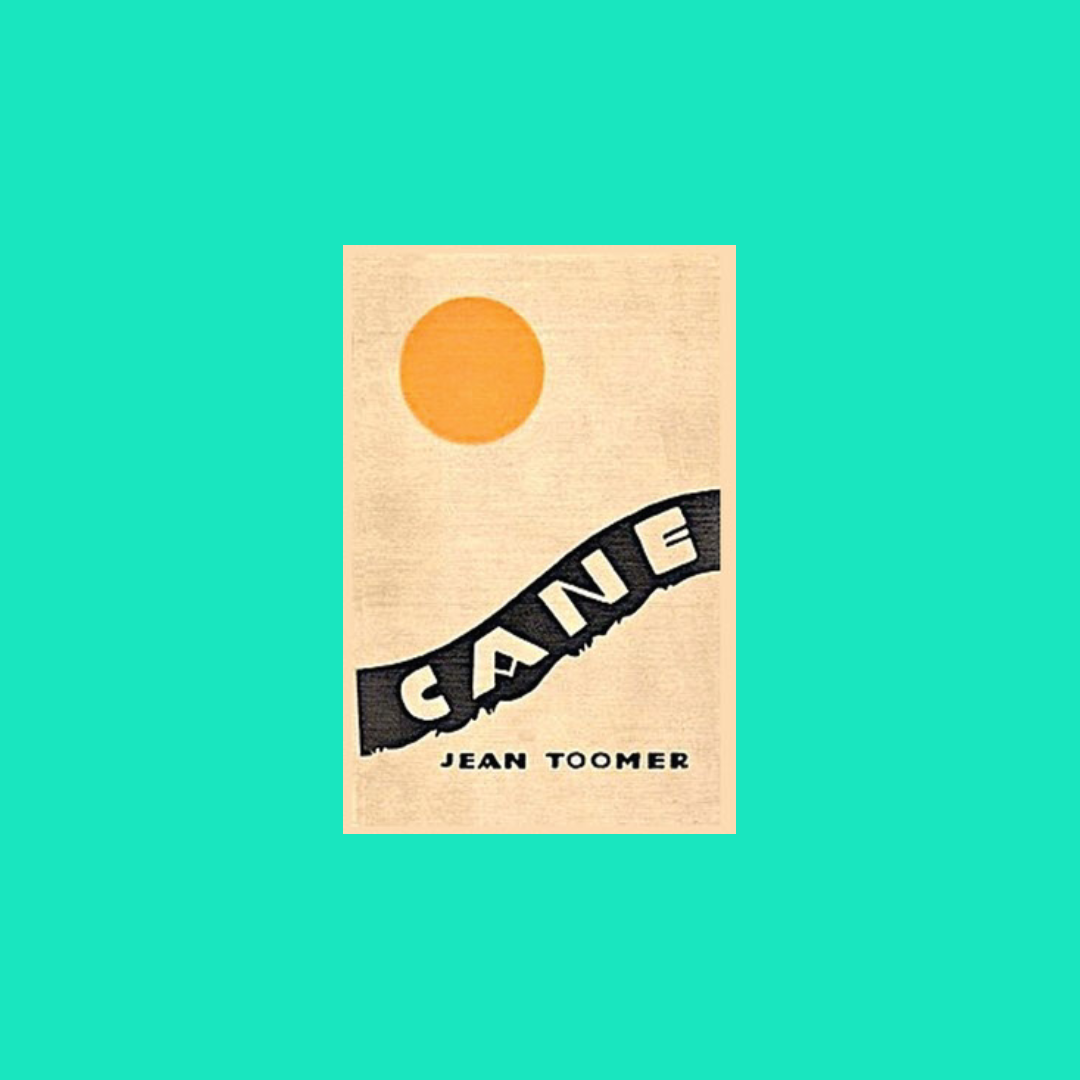APS TOGETHER
Day 7
Cane by Jean Toomer"Bona and Paul"
August 9, 2022 by Sharifa Rhodes-Pitts
and give precision to the movements of sick people who all their lives have been drilling.
This description of the training of the student teachers doing drills is a sly indictment of education, conformity.
He is a harvest moon. He is an autumn leaf. He is a nigger. Bona! But dont all the dorm girls say so? And dont you, when you are sane, say so? Thats why I love—Oh, nonsense. You have never loved a man who didnt first love you.
Bona's rhapsodic admiration is interrupted. One image overrules the others.
Paul follows the sun, over the stock-yards where a fresh stench is just arising, across wheat lands that are still waving above their stubble, into the sun. Paul follows the sun to a pine-matted hillock in Georgia. He sees the slanting roofs of gray unpainted cabins tinted lavender. A Negress chants a lullaby beneath the mate-eyes of a southern planter. Her breasts are ample for the suckling of a song. She weans it, and sends it, curiously weaving, among lush melodies of cane and corn. Paul follows the sun into himself in Chicago.
This is an origin story, of sorts.
Hell of a thing, that Paul’s dark: you’ve got to always be answering questions.
Paul's color requires others to account for him... explain him.
Suddenly he knew that he was apart from the people around him. Apart from the pain which they had unconsciously caused. Suddenly he knew that people saw, not attractiveness in his dark skin, but difference. Their stares, giving him to himself, filled something long empty within him, and were like green blades sprouting in his consciousness. There was fullness, and strength and peace about it all. He saw himself, cloudy, but real.
In this moment, Paul seems to fully reckon with the (un)reality of his existence in a racialized body. How does this ostracization "give him to himself?" What is available to him because of this acceptance?
Paul: From the South. What does that mean, precisely, except that you’ll love or hate a nigger? Thats a lot. What does it mean except that in Chicago you’ll have the courage to neither love or hate.
Bona, by means of her Southern origin, is closer to Paul, to the problem his racial ambiguity embodies— the proximity of love and hate.
had watched them enter. Had leaned towards each other over ash-smeared tablecloths and highballs and whispered: What is he, a Spaniard, an Indian, an Italian, a Mexican, a Hindu, or a Japanese? Art had at first fidgeted under their stares... what are you looking at, you godam pack of owl-eyed hyenas?
The intense scrutiny drawn by Paul's racial ambiguity pressures those around him; his presence disrupts their position in the accepted order. It's impossible to read this description without thinking of Jean Toomer himself and how he navigated the world, eventually rejecting racial identity.
She tries to get Art to break with him, saying, that if Paul, whom the whole dormitory calls a nigger, is more to him than she is, well, she’s through. She does not break with Art. She goes out as often as she can with Art and Paul. She explains this to herself by a piece of information which a friend of hers had given her: men like him (Paul) can fascinate. One is not responsible for fascination. Not one girl had really loved Paul; he fascinated them. Bona didnt; only thought she did. Time would tell.
This moment of Helen's interior speech reveals the conditionality of his life among white peers, and how he is ostracized. Paul's racial difference means he cannot be loved by the white girls, he is only an object.
They know that the pink-faced people have no part in what they feel. Their instinct leads them away from Art and Helen, and towards the big uniformed black man who opens and closes the gilded exit door.
Bona and Paul are pushed together, even as they cannot connect—strung between passion and contempt. What is it they feel that the "pink-faced" cannot? They flee the dance floor, heading toward those who guard the entertainment (the doorman and cloak-room girl).
Paul leaves Bona and darts back so quickly that he doesnt give the door-man a chance to open. He swings in. Stops. Before the huge bulk of the Negro.“Youre wrong.”“Yassur.”“Brother, youre wrong.”
It is at this threshold, marked by a "gilded exit door" that Paul experiences a kind of mental break (one in a series, we should note). As he breaks from the white crowd into the blackness signified by the workers, he bends propriety in more than one way—his transgression of a class distinction is matched by an abandonment of sense. His language reveals a world of images, he is reordering the world and its categories. "Youre wrong," he tells the doorman. The images of black and white are overturned, he replaces them with a garden, "petals of roses" and "petals of dusk."
Paul and the black man shook hands.When he reached the spot where they had been standing, Bona was gone.
Some kind of accord is reached after this monologue. Is the black doorman humoring him with the handshake, or is it a moment of connection?
Meanwhile, Bona has fled. Has she returned to the safety of whiteness, unwilling to go further with Paul?
